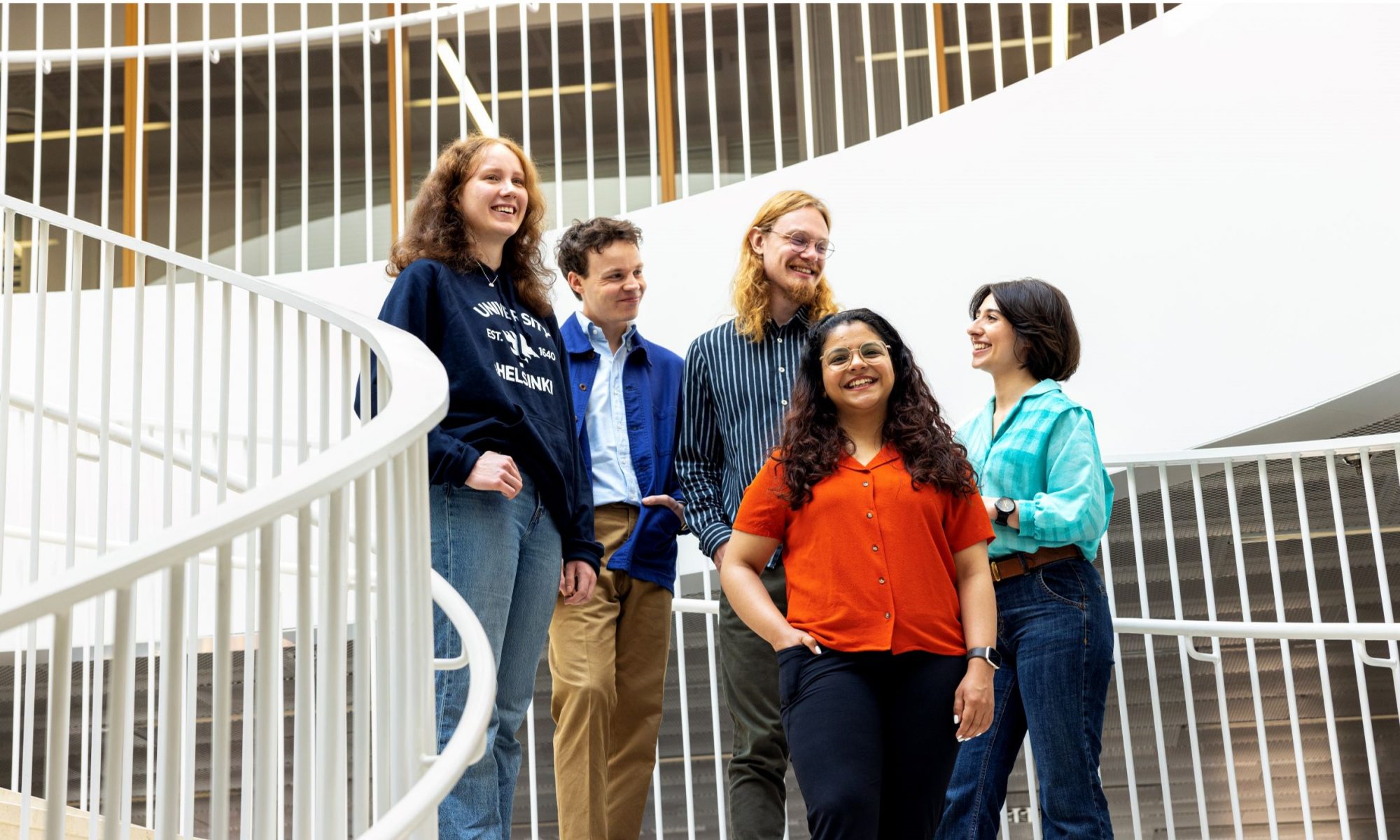Watch the short clip and learn about experiences from the first season!
COMMENTS FROM STUDENTS
Busola Peters, Business Finland Group:
 I did see how hard it can be to find a job in Finland as an international student and decided that I needed all the help I could get. That’s why I joined the UNIHelsinki International Talent Program. As a result, it was a truly wonderful experience. I was working with Business Finland, and during the program, we had several meetings with our mentor, Regina, and other mentees. I am still in touch with a lot of people! We had the opportunity to visit some industries and experience the working environment in Finland. Participation in the HITP removed the curtain between us (international students) and the business world, eventually making the Finnish job market look less intimidating. Initially, it was unclear how to find a job, how to submit an application, and so on. We gained a lot of insights and advice, for example, on how to handle interviews, how to structure a CV, and how to capitalize on our strengths and skills.
I did see how hard it can be to find a job in Finland as an international student and decided that I needed all the help I could get. That’s why I joined the UNIHelsinki International Talent Program. As a result, it was a truly wonderful experience. I was working with Business Finland, and during the program, we had several meetings with our mentor, Regina, and other mentees. I am still in touch with a lot of people! We had the opportunity to visit some industries and experience the working environment in Finland. Participation in the HITP removed the curtain between us (international students) and the business world, eventually making the Finnish job market look less intimidating. Initially, it was unclear how to find a job, how to submit an application, and so on. We gained a lot of insights and advice, for example, on how to handle interviews, how to structure a CV, and how to capitalize on our strengths and skills.
I believe it’s important to understand that networking is an ongoing process, not just a one-time event. This program is a great opportunity to start building your network. Personally, HITP helped me realize that career paths can be diverse; you don’t need to stick to one route all the time. There is a whole spectrum of opportunities out there. It truly broadened my horizons. For example, I study nutrition, but I also want to help others. Eventually, participation in the UNIHelsinki International Talent Program inspired me to become an International Student Advisor.
Sebastian Rodriguez, Think Company Group:
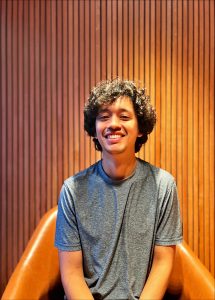 For me, the best part of HITP was the opportunity to have informal, insightful conversations with our mentors and learn from their experiences. We were able to attend various conferences, workshops, events, and even visited some startup companies in Helsinki, founded by both Finns and internationals. During workshops, we gained valuable experience on how to start our own business in Finland while being a foreigner, how to pitch our ideas, and how to navigate Finnish legislation. We also covered such important topics as challenges that internationals can face while creating startups in Finland, including cultural and language barriers. I would definitely recommend this Program, especially for 1st-year Master students because it can guide you while exploring your career path in Finland.
For me, the best part of HITP was the opportunity to have informal, insightful conversations with our mentors and learn from their experiences. We were able to attend various conferences, workshops, events, and even visited some startup companies in Helsinki, founded by both Finns and internationals. During workshops, we gained valuable experience on how to start our own business in Finland while being a foreigner, how to pitch our ideas, and how to navigate Finnish legislation. We also covered such important topics as challenges that internationals can face while creating startups in Finland, including cultural and language barriers. I would definitely recommend this Program, especially for 1st-year Master students because it can guide you while exploring your career path in Finland.
My main insight from the HITP is that it is possible to build a business here in Finland even if you are not Finnish! Yes, it will take some effort and determination, but there are many opportunities that can help you. This Program was not only about a career but also about stepping outside of your comfort zone and meeting students from different programs.
Ghida Khalife, Optimapharm Group:
 I am glad I had the opportunity to participate in this program; it was definitely one of my highlights during my first year at the University of Helsinki. As new students, we didn’t really know much about the working culture in Finland and could only answer theoretically about our respective fields. This program was a game-changer in that sense because I got to know what people, who like me, studied Translational Medicine, are doing in their careers. During one of our sessions, we met a recent graduate of my current master’s program, and it was really nice to meet someone with the same educational background. Maybe without this program, I wouldn’t have had the chance to do that. My group was working with Optimapharm, and the international team really inspired me to understand that you don’t always need perfect Finnish to find a job here in Finland. Of course, Finnish can be an advantage, but it’s not always mandatory, and it’s nice to be reminded of that.
I am glad I had the opportunity to participate in this program; it was definitely one of my highlights during my first year at the University of Helsinki. As new students, we didn’t really know much about the working culture in Finland and could only answer theoretically about our respective fields. This program was a game-changer in that sense because I got to know what people, who like me, studied Translational Medicine, are doing in their careers. During one of our sessions, we met a recent graduate of my current master’s program, and it was really nice to meet someone with the same educational background. Maybe without this program, I wouldn’t have had the chance to do that. My group was working with Optimapharm, and the international team really inspired me to understand that you don’t always need perfect Finnish to find a job here in Finland. Of course, Finnish can be an advantage, but it’s not always mandatory, and it’s nice to be reminded of that.
I’m really glad I joined HITP during my first year because it was an excellent place to start my career journey. I would recommend students to join it in their first year as well, or maybe even twice! You will definitely have more connections, networks, and you will be closer to finding out what you actually want to do in your career.
Anna Li, ELY (Center for Economic Development, Transport, and the Environment) Group:
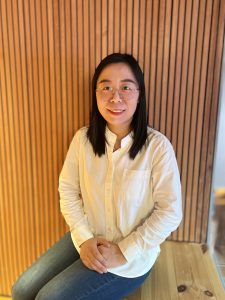 I had the incredible opportunity to be a part of the HITP networking program. Through this experience, I forged meaningful connections with fellow participants, creating a network of like-minded individuals with diverse backgrounds and perspectives. The program’s emphasis on connecting participants with mentors was a game-changer. The mentors were not only responsible and active in guiding us but also generously shared their wealth of experience and knowledge, providing invaluable insights that have profoundly impacted my personal and professional growth. One of our mentors, Laura, was trying to cover all the areas students were interested in, since we all had different backgrounds. Moreover, the environment fostered open dialogue, allowing us to share our experiences and learn from one another. This program has undoubtedly enriched my life, and I am grateful for the lasting connections and the knowledge I gained from it.
I had the incredible opportunity to be a part of the HITP networking program. Through this experience, I forged meaningful connections with fellow participants, creating a network of like-minded individuals with diverse backgrounds and perspectives. The program’s emphasis on connecting participants with mentors was a game-changer. The mentors were not only responsible and active in guiding us but also generously shared their wealth of experience and knowledge, providing invaluable insights that have profoundly impacted my personal and professional growth. One of our mentors, Laura, was trying to cover all the areas students were interested in, since we all had different backgrounds. Moreover, the environment fostered open dialogue, allowing us to share our experiences and learn from one another. This program has undoubtedly enriched my life, and I am grateful for the lasting connections and the knowledge I gained from it.
This program came into my life at the perfect moment, just as I was reaching the culmination of my university education. It couldn’t have been better timed, as I was in dire need of this networking opportunity to bridge the transition from academia to the professional world.
COMMENTS FROM MENTORS
Tanja Malo, City of Helsinki:
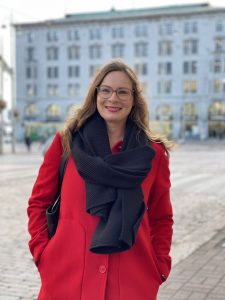 It was a really lovely experience to be part of HITP from an employer’s point of view. We had five meetings together with the students, and it was really fulfilling to provide them with information about our working life. We learned that it is better to be more interactive during our participation, so the students would have a bigger role. For this year’s programme, we developed a project to teach mentees how we work on our day to day basis.
It was a really lovely experience to be part of HITP from an employer’s point of view. We had five meetings together with the students, and it was really fulfilling to provide them with information about our working life. We learned that it is better to be more interactive during our participation, so the students would have a bigger role. For this year’s programme, we developed a project to teach mentees how we work on our day to day basis.
HITP is one way for employers to find future talents and create greater cooperation with them. I believe this is an excellent way of finding students looking for opportunities in Finland.
Juha Jokela , FIIA
Juha Jokela, University of Helsinki alumnus, is a Programme Director of the European Union Research Programme at the Finnish Institute of International Affairs (FIIA). In 2021, Juha Jokela, together with FIIA, took part in the HITP programme for the second time: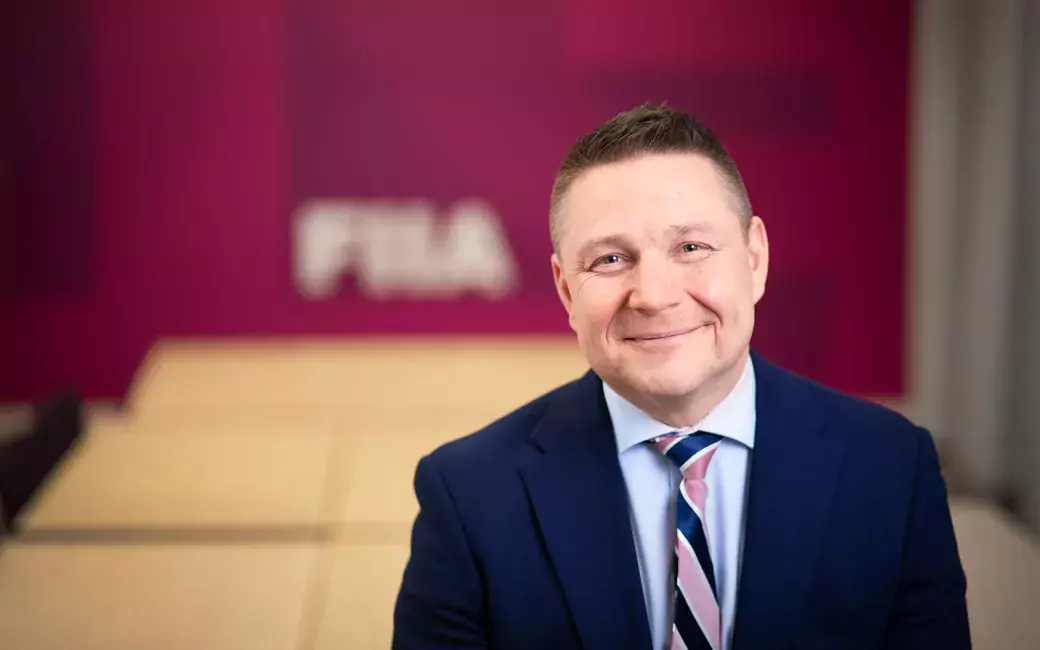
“I truly enjoyed the discussions and the openness of the group of students. We could discuss matters related to their studies, career aspirations, but also topics on a more personal note such as how it is being a master student at the Helsinki University and a person coming to Finland from abroad. This was a possibility for FIIA to open up to the university world and the current student community. It was important to get an overall understanding of the current master programs, meet students from there, and identify potential areas of collaboration. What can we learn and how could the students benefit from our activities? We acquired quite a nice overview of people working on themes relevant to our research. ” Read more
Barbara Bergbom, Finnish Institute of Occupational Health
Barbara Bergbom is a leading specialist in culture and diversity issues at the Finnish Institute of Occupational Health and a former mentor of HITP. Having collaborated with the university in letting students know more about diversity and inclusion in Finnish workplaces, Barbara accepted the proposal of becoming an HITP mentor and jumped right into the challenge of boosting the employability of international talents. Although Barbara had worked with international students from the University in the past, this was the first time she acted as a mentor. “It was a pleasure to participate in HITP, and in general, everything was very well organized,” she said gladly in her interview.
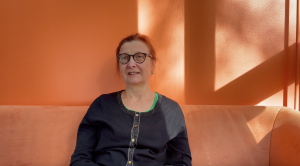
Barbara said that she learned so much about mentoring and the international students’ situation in Finland. “It was excellent to hear from those experiences. They were brilliant and motivated to study; they learn Finnish to some degree, and their master’s theses were fascinating,” she said. As a mentor, her tasks were to inform as much as possible about the mentees’ work field of interest in Finland. She managed the group’s needs by organizing meetings, inviting guest speakers, and structuring a plan to provide students with more information about a job application. “Since it was my first time as a mentor, I felt very well supported by the university staff, they guide me through all the way, and I could have even asked for more sport if I wanted,” she noted.
Besides, Barbara shared her image of the international students from the University of Helsinki after mentoring them for six months. According to her, the performance of her mentees was remarkable. “The mentees took the mentorship very seriously, and the guest-speakers were impressed about how engaged they were in every discussion, she told. As the international students have a global scope of their own fields of expertise, they are the perfect fit for Finnish companies that would like to integrate into the global society. “Because of demographic changes derived from internationalization and globalization, working life is becoming more international in Finland, and we need people to understand how to work in multicultural workspaces,” Barbara added. In this regard, she noted that the belief that hiring international talent is too much work for Finish companies is incorrect. “When expat organizations hire highly academically educated migrant workers, they realize that they do not need to completely transform their working culture she argued.
Ultimately, in her interview, Barbara strongly recommended organizations to participate in HITP. “I think it is really worthwhile and really recommended, but I think it would be good to think beforehand what they want to get from this experience,” she added. Recalling her experience as an HTIP mentor, she explained what the Finnish Institute of Occupational health learned from HITP.
“We learned more about what we should do at the Finnish Institute of Occupational health to be more inclusive and diverse for non-Finnish people. We realized, for example, that most of our documents are not accessible for non-Finnish speakers. So I really suggest that organizations think in advance what they expect to achieve from their participation.”
